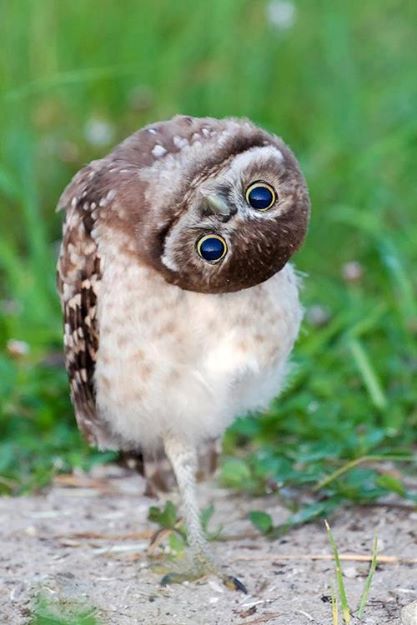Discovering the Diverse Owls of Florida: A Comprehensive Guide
Florida’s varied habitats host an impressive array of wildlife, among which the elusive and majestic owls hold a special place. From the silent forests to the bustling wetlands, the Sunshine State is a perfect place for birdwatchers and nature enthusiasts to explore a rich collection of owl species. In this article, we delve into the fascinating world of owls in Florida, revealing the diversity of these nocturnal raptors through their unique behaviors, habitats, and the best spots for sightings.
Introduction to Florida’s Owls
Owls are known for their distinctive calls, silent flight, and mesmerizing eyes. In Florida, the mild climate and diverse ecosystems provide excellent living conditions for these raptors. Here, you can spot everything from the commanding Great Horned Owl to the quaint Burrowing Owl, each with its own role in the state’s ecology.

Table 1: Overview of Owls in Florida
| Species | Description | Habitat |
|---|---|---|
| Great Horned Owl | Large, aggressive raptor with tufted ears | Forests, swamps, urban areas |
| Barred Owl | Unthreatened species, known for its hoots | Woodlands, swamps |
| Barn Owl | Least common, with a heart-shaped face | Grasslands, open areas |
| Short-eared Owl | Ground-nesting species with pale face | Open habitats, grasslands |
| Burrowing Owl | Small stature, nests in burrows or sandy areas | Pastures, golf courses, airports |
| Eastern Screech Owl | Adorable and tiny with various color morphs | Deciduous forests, parks |
With this handy overview, let’s take a closer look at each owl species you’re likely to encounter in Florida.

Types of Owls in Florida
Here’s a snapshot of the rich diversity of owl species you may encounter while traversing the various landscapes of Florida:

Great Horned Owls: Florida’s Fierce Nighttime Predator
Characteristics:
– Large size, with a wingspan up to 5 feet
– Prominent ear tufts or “horns”
– Deep hooting call, often heard at dusk
Habitat:
Found throughout Florida in forests, swamps, and urban areas. Adaptable and territorial, they are abundant year-round.
Barn Owls: The Ghostly Hunters of the Night
Characteristics:
– Heart-shaped face and white plumage
– Silent flight, making them efficient hunters
– Prefers open areas for hunting

Habitat:
Less common in Florida, but can be found in grasslands, agricultural fields, and open landscapes.

Short-eared Owls: Masters of Open Terrain
Characteristics:
– Dark eye patches on a pale face
– Ground nesting habits
– Long wings with buff patches
Habitat:
While more common up north, they can occasionally be spotted in Florida’s open habitats like marshes and grassy fields.
Burrowing Owls: Florida’s Adorable Earth Dwellers
Characteristics:
– Small size, averaging 9 inches in height
– Lacks ear tufts, has bright eyes
– More white spotting than western counterparts
Habitat:
Prefers cleared areas with short groundcover such as pastures and agricultural fields. Can often be seen perched near their burrows during daylight.
Amazon Late Delivery Refund 2022
Barred Owls: The Melodic Voices of the Woodlands
Characteristics:
– Hooting call with a unique rhythm
– Barred feather pattern
– Nocturnal, but sometimes seen during the day
Habitat:
Thrives in mature woodlands and swampy areas. Known to be unthreatened and widely distributed across the state.
Best Places to Observe Owls in Florida
To witness these captivating birds, consider visiting the following locations where they are known to frequent:
- Everglades National Park: A haven for the Barred and Great Horned Owls.
- Oscar Scherer State Park: A go-to spot for observing the elusive Burrowing Owl.
- Myakka River State Park: Offers a chance to see Barred Owls along the treetop canopy walk.
Do Starbucks Refreshers Have Caffeine
Remember to respect the natural habitats and maintain a safe distance to ensure minimal disturbance to these magnificent creatures.
Conservation and Protection of Florida’s Owls
Protecting Florida’s owl populations involves habitat conservation, monitoring of species, and public education on the importance of these raptors. Engaging with local Audubon chapters and wildlife organizations is a great way to participate in conservation efforts.
Conclusion
Florida’s tapestry of ecosystems is beautifully enriched by the presence of its various owl species. Each one, from the stately Great Horned Owl to the comical Burrowing Owl, plays a vital role in the ecological balance. Whether you’re a seasoned birder or a casual observer, the pursuit of owl-watching in Florida promises to be a rewarding and educational experience. So the next time you’re out exploring the natural beauty of the Sunshine State, keep an ear out for the iconic calls and an eye out for the silent flight of Florida’s owls.






















:fill(white)

